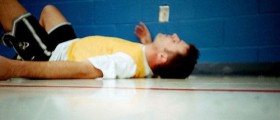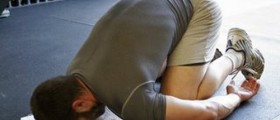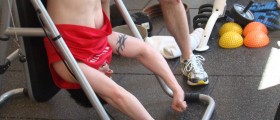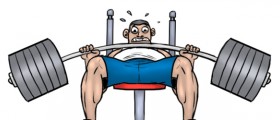
Overtraining – What’s that?
Overtraining is the term describing condition when someone’s individual physical activity exceeds this person’s recovery capacity. The condition is more than physical and it affects person’s behavior and emotions, and it could be the cause of lost strength and fitness, as well as lack of any exercise progress. People that are most likely to suffer from overtraining are weight lifters, but also many other athletes, including runners.How Does Overtraining Happen?
Hard training should be followed by the period of rest, because this is the only way you will improve your strength and fitness. It may take as long as several days to recover and period of rest should depend mainly on the intensity and duration of exercise that caused over training, or you won’t regenerate completely as you should. Repeated over training and inadequate rest will always lead to decrease of performance. Sometimes, people exposed to stress, both physical and psychological are found to be more likely to suffer from over training. Poor nutrition, menstruation, different diseases, overwork or even jet lag has been identified as contributing factors for development of over training.An athlete mildly over trained usually needs few days of reduced activity or rest to recover, but if the fatigue accumulates – overtraining may be present for weeks and even months. There are several proposed mechanisms how people end up over trained. Poor nutrition, when the body becomes deficient in calories and the muscles start to break down more than normal and protein deficiency are known to be some of mechanisms of overtraining. Also, muscle microtraumas that body can’t heal fast enough, elevated cortisol and catabolic state of the body most of the time can contribute to overtraining. Excessive strain to the nervous system of the athlete during the physical activity can be blamed for overtraining, too. Over training can be planned and there are planned overtraining strategies, especially among bodybuilders from ex Soviet countries, which is known as “shock micro-cycles” technique.
Recognize the Symptoms
People suffering from overtraining may experience: persistent tiredness and delayed soreness of the muscles, increased incidence of infections and injuries and also reduced heart rate variability but elevated heart rate at rest. These patients may suffer from irritability, depression or in some cases even mental breakdown. There are also many physiological and psychological effects of the overtraining, as well as negative performance effects than accompany this condition.Overtraining Treatment
Changing your diet and taking sufficient rest are the best courses of treatment for overtraining. Specialists advise taking sufficient amount of calories and using nutritional supplement for any vitamin deficiencies. When over trained increase sleeping time, take a break or at least reduce the intensity of the training. Periodization of training and working on different sets of muscles on different days might also be very helpful. Self massage, deep tissue or sport massage, as well as thermo and cryotherapies and temperature contrast therapy can also help.









_f_280x120.jpg)






Your thoughts on this
Loading...